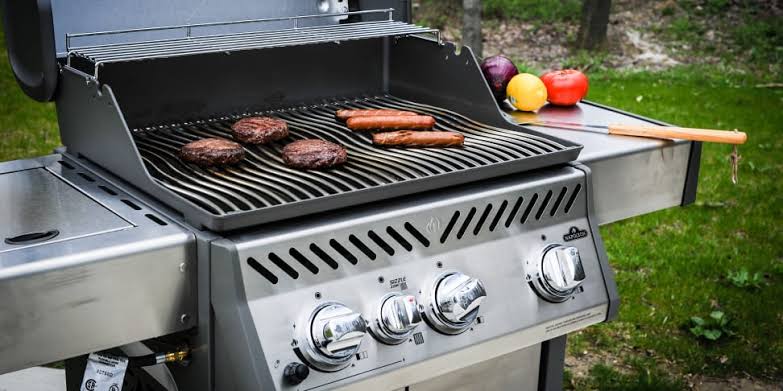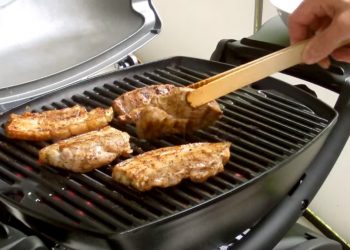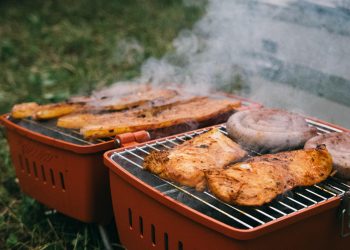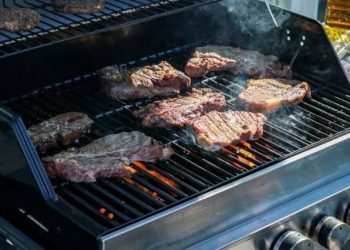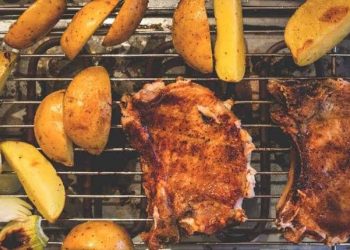Table of Contents
Gas grills are generally outdoor cooking utilities. They, unlike indoor appliances, don’t enjoy the safer environment and tend to get dirty and damaged quicker than the indoor appliances. If you own a gas grill the question “How long will my gas grill last?” might have popped in your head at least once.
Gas grills are made of a collection of different components that are equally prone to get damaged over time when used regularly just like other appliances. But since most of the gas grills are used outdoors only, they get exposed to the climatic conditions as well that tend to speed up this process.
How do gas grills generally last?
The simplest answer to this question will be it depends on the usage and conditions the grill is exposed to. Indoor grills generally last longer than the outdoor ones. The simple reason for this is that indoor grills are not exposed to the sun or any other external climatic factors, unlike their outdoor counterparts.
Grills take a lot of beating. They are exposed to high temperatures on a regular basis and also have to face spilled food and other contaminations. Seasonal changes also cause damage to the grill’s body as in rainy season moisture can cause corrosion on the surface of the grill eating the metal parts slowly from inside out. Grills that are not made that well pose another problem in the longevity of the structure as over time the grills will automatically fail and their structures will start breaking down one by one.
Other than the metal parts and structural integrity, grills also have other parts that are prone to fail one day or the other. The igniter module, ignition valves, regulator, burner, grill cover, fuel pipes are some parts of the grill that can cause trouble if not maintained properly.
Searching for best gas grill under $300 on the internet will provide you with good quality grills that are well constructed and have high-quality parts that should easily last you 3-4 years at the minimum even with occasional maintenance.
These numbers may change based on your usage of the grill and the part of the country you live in. as stated earlier climatic conditions play a major role in the health of an outdoor grill but regular maintenance can help to significantly increase the grill’s lifespan.
What parts of the grill are most likely to break down?
A gas grill is made of multiple smaller components and each of them has its own lifespan. Through regular maintenance, you can increase their lifespan significantly, but they will break down eventually after which they need to be replaced. The components of a grill that are most prone to get damaged sooner or later are the heat plates and the burner. The grill cover also is exposed to high temperatures on a regular basis which will eventually cause it to get cracked and fall apart. The food drippings from the food that you cook on the grill also tend to slowly corrode and eat away the metallic parts of the grill weakening the structural integrity of the grill.
How to increase the lifespan of your grill?
Regular maintenance can help to increase the lifespan of your grill significantly. Maintenance helps to repair any broken or weak components and also helps to prevent any future damage too. It is mandatory to test and buy a good grill considering its lifespan and longevity at the time of buying itself. This will not only help to get the best value for your money but it will also ensure that you don’t need to replace any parts too soon.
The strength and sturdiness of a grill out of the box don’t directly translate to how it will perform at your location. It is advised to consider the climatic and placement conditions before buying a grill for your house. If you live in a cold place, make sure that you move your grill in a shed or the garage in the winter season.
Prolonged exposure to hot sun continuously can also damage the paint layer of the grill causing it to break and fall apart. To prevent these types of damages, a regular maintenance schedule should be performed. Follow these steps to extend your grill’s life
- After every grilling session makes sure that you thoroughly clean the grill and the burners. Make sure no food particles or drippings go unnoticed. Food drippings can corrode the metal parts of the grill moreover it can cause stains on the surface of the grill that can be hard to remove afterward.
- Don’t keep the grill running if you are done cooking on it. This will not only save your fuel but it will also help to not overheat the grill’s parts unnecessarily.
- Oil the hinges and foldable sections of the grill on a regular basis. Dry hinges tend to rust sooner and corrode faster. Use any kind of lubricant or oil to lubricate the rods and hinges.
- Always cover the grill once you are done using it.
- If any part of the grill starts rusting try to use rust remover products to get rid of the rust as soon as possible and if no products work gets the particular part replaced as fast as possible.
- Don’t overheat the grill more than what you need, regular overheating may cause the ceramic grill and the cover to crack.
- If your grill starts losing its paint layer get a paint job done as quickly as possible or get rid of the pain completely since the paint can mix with your food and cause health issues.
Conclusion
If you own a grill or want to buy one it is always helpful to know how long it will last. The lifespan of a grill depends upon a combination of multiple factors such as the build quality, maintenance, climatic conditions, and usage. The lifespan of any appliance such as a grill can be increased significantly by doing regular maintenance and following certain precautions.

